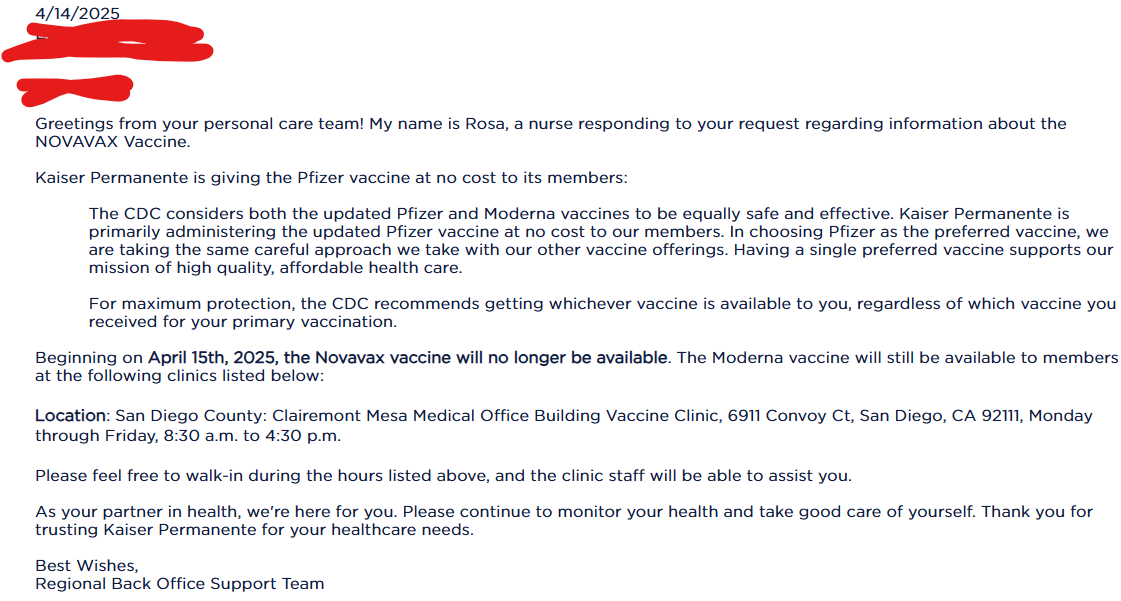I haven’t had Covid vaccine since the 2 initial Moderna shots for Delta in 2020/21. The high prevalence of Long Covid and myself probably having a mild case along with several studies pointing to links to dementia make me look in to getting the vaccine in 2025, especially now that Novavax traditional antigen (non-mRNA) is available.
YOUR HEALTH
Is Covid Rewriting the Rules of Aging? Brain Decline Alarms Doctors
Millions of long-Covid patients continue to struggle with cognitive difficulties
Follow the WSJ in Apple News
Five years after the pandemic’s start, millions of Americans are still struggling with long-lasting symptoms of Covid-19. Cognitive difficulties are among the most troubling and common symptoms in people both old and young.
These ailments can be severe enough to leave former professionals like Ken Todd unable to work and even diagnosed with a form of mild cognitive impairment.
I first spoke with Todd, a 56-year-old former Showtime executive in New York City, in 2022 for a column on long-Covid patients grappling with crippling fatigue.
Todd says he stopped working in 2023. When he tried to apply for jobs he realized he just didn’t have the physical or mental stamina. “It just exacerbated my symptoms,” he says.
Todd was diagnosed with a form of mild cognitive impairment in February. Now, he is pursuing cognitive rehabilitation to learn strategies to compensate for his cognitive deficiencies, along with other therapies. “We have not talked about regression,” says Todd. “But we need to keep monitoring it.”
Our exchange raises a troubling question: Are long-Covid patients’ cognitive symptoms getting better or regressing? And are those patients being diagnosed with mild cognitive impairment, or MCI, more at risk for developing dementia or Alzheimer’s disease later?
I posed these questions to the doctors and scientists who see and study these patients. Most agree that long-Covid patients experience cognitive issues and other neurological symptoms likely fueled by brain inflammation.
Cognitive difficulty
It remains unclear if these changes will persist or worsen over time. But there are some disturbing signals that they could, at least in a certain subset of patients. And there is some evidence that the age when you got Covid-19 may be an important factor.
Studies have found that older people who have Covid-19 are at increased risk of developing Alzheimer’s sooner than if they haven’t had it. Covid may be accelerating the process in people already at risk of dementia, or contributing to it.
In younger people such as Todd, complaints of brain fog and cognitive difficulties may be intertwined with, or stem from, other common long-Covid symptoms, such as fatigue and pain, doctors say.
Dr. Gabriel de Erausquin, a neurologist at University of Texas Health San Antonio, recently published a study that found the risk of moderate to severe cognitive impairment in older adults with long Covid was double that of younger ones.
For those long-Covid patients over 57, the symptoms associated with cognitive difficulties look much like early dementia, he says.
“It doesn’t look in older adults that this is a reversible process,” says de Erausquin.
“If you look at the tests they have the profile of a person with very early Alzheimer’s disease. Do they have Alzheimer’s disease? We don’t know.”
A rising rate
Beyond age, his research has found that long-Covid patients more susceptible to cognitive impairments share a certain number of genes, have a reduced size of some brain structures, and typically lose their sense of smell soon after a Covid-19 infection.
De Erausquin is conducting a study following about 4,000 people in five locations around the world who contracted Covid-19 when they were over 60 years old. Preliminary data shows that up to one-third of long-Covid people over 65 meet criteria for an MCI diagnosis.
“That’s huge,” he says. “That’s a four- or fivefold increase in the prevalence.”
MCI can be caused by a variety of factors, explains Ronald Petersen, a neurology professor at the Mayo Clinic College of Medicine and Science in Rochester, Minn.
Symptoms typically include short-term memory problems—such as forgetting important information—to the point it becomes noticeable.
In people in their 70s or 80s, a common cause of MCI is underlying Alzheimer’s disease, says Petersen. About 10% to 15% of people with MCI who see a doctor will develop dementia a year, he says.
Some causes of MCI—such as sleep apnea—are treatable, making the condition reversible. This could be the case for long-Covid patients, or at least some of them.
Some long-Covid patients do show improving cognitive symptoms though recovery isn’t linear, says Dr. Igor Koralnik, chief of neuro-infectious diseases and global neurology at Northwestern Medicine in Chicago.
Bumpy road
A February study his group published in the Archives of Physical Medicine and Rehabilitation found that after cognitive rehabilitation about half of patients reported an improvement. But about one-third of the 70 patients didn’t have a significant difference in objective measures of memory.
“There are bumps on the way especially if they develop another episode of Covid,” says Koralnik.
For some long-Covid patients, neurological symptoms seem to get worse with time.
Juan Lewis, a former deputy commander of an air base squadron in Germany, was hospitalized with Covid-19 in April of 2020. His initial symptoms were pulmonary but soon he noticed cognitive difficulties.
“I thought Covid was just in the lungs,” the now 59-year-old says from his home in San Antonio.
Lewis was a multitasking master with an impeccable memory before retiring from the Air Force and getting a job with the Department of Defense. In 2021, he was diagnosed with mild cognitive impairment.
“I very seldom go places by myself,” he says. “My wife is often with me. I’m easily distracted. I constantly leave credit cards in restaurants.”
“I’m extremely worried,” he says. “I don’t want dementia.”
Write to Sumathi Reddy at Sumathi.Reddy@wsj.com
Trump’s First 100 Days
The biggest scoops and insights from our team in Washington. Our daily newsletter continues through the first days of the new administration and beyond.
.
